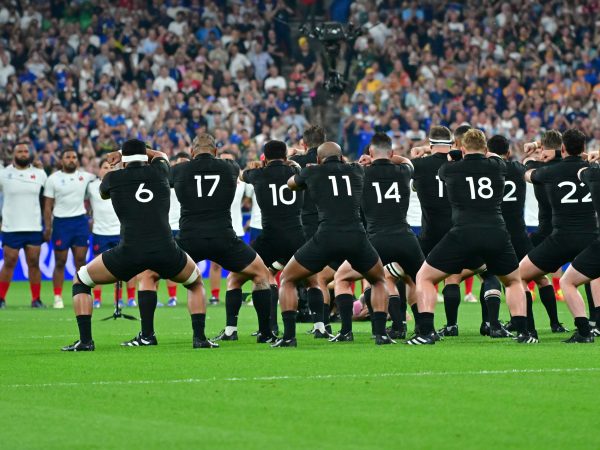I feel it is time that rugby finally caught up with other sports and allowed their audience to easily identify players by using squad numbers
I, like most of the people who tune into this year’s Rugby World Cup, do not watch the sport every week. I spread myself thinly across multiple sports enjoying them in person or perched on my sofa at home.
Sport is there to entertain and is about exciting the spectators, and as other sports have discovered making sure that your audience know exactly what is going on and who is doing what is a fantastic way of making sure that they enjoy their event.
Read more: How to watch the Rugby World Cup for free wherever you are
US Sports have been doing it for years, and now football and even cricket use squad numbers as a way of identifying the player for their spectators. There is nothing more frustrating than watching a sport and not knowing who is doing what. Names on the back of shirts and specific squad numbers have been embraced by sports and indeed athletes as their own trademarks.

Michael Jordan made the number 23 his own while playing in the NBA Credit: Getty Images
Rugby positions will, of course, always be inherently linked to shirt numbers and I certainly am not saying that the number 10 shirt should be worn by a prop. But when the sport is being shown in front of its biggest possible audience at the end of its four-year World Cup cycle then let’s help the audience out as much as possible, the rugby die-hards and the standard sport fans who want to support their countrymen.
George Ford’s performance at number 10 against Argentina has grown his reputation and of course his popularity. In a couple of weeks he could be playing against Samoa, with Owen Farrell back available, but wearing a shirt with a different number. It’s confusing for audiences, and it is completely unnecessary.

George Ford in his number 10 shirt v Argentina Caption: Getty Images
The standard numbering of shirts and their accompanying positions was put in place in the vast past of the games – where substitutions happened far less than they do now. With blood replacements, concussion tests and more subs on the bench than ever, it is tricky to keep up with who is on pitch and who isn’t.
Those who love tradition, should not worry, in football the striker still wears number 9, number 10 is still a position as well as a shirt. And the last time I checked Jordan Pickford could still call himself England’s number one…
Related: Ford fires 14-man England to huge World Cup upset against Argentina
There is also a financial gain to having squad numbers that all clubs and countries should take note, the sales of Messi and Ronaldo shirts for their current clubs are worth tens of millions to those organistaions. In a time where rugby could do with as much cash as possible, surely this is a revenue stream that should be embraced. Seeing some countries at the World Cup not even able to print player names on the back of shirts is simply not good enough for a tournament of this size.

Guess Who? Japan were one country who do not have names on their shirts
So come on rugby, get with the program, start assisting your supporters, make the fantastic product you already have even more accessible for those who may have stumbled onto the coverage and give your sport a bigger chance of thriving. What’s the worst that could happen?
Download the digital edition of Rugby World straight to your tablet or subscribe to the print edition to get the magazine delivered to your door.





